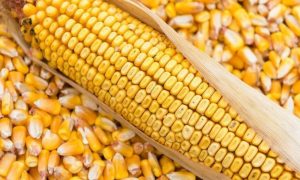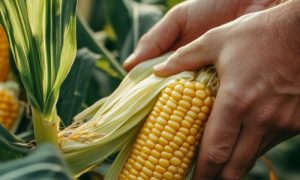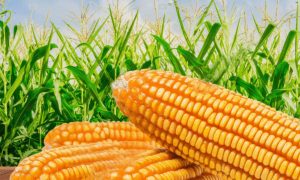Poultry industry hurt by high maize, soyabean prices

The Nigerian poultry sector is struggling with soaring maize and soybean prices, now at N910,000 and N714,000 per tonne, respectively. These high costs, driven by insecurity and climate change, are reducing poultry farming and impacting job losses. President of the Poultry Association of Nigeria, Chief Sunday Ezeobiora, urged the government to address these issues and consider maize imports to stabilize prices. The sector’s demand for maize exceeds 4 million metric tonnes annually, and rising costs are affecting both producers and consumers.
The poultry sector is currently grappling with the challenges posed by soaring prices of maize and soybeans, The Nation learnt. Maize is now being sold at N910,000 per tonne, while soybeans are priced at N714,000 per metric tonne.
The high prices of these essential ingredients for poultry feeds are attributed to decreased productivity caused by insecurity and climate change. Consequently, fewer individuals are engaging in poultry farming due to the increased operational costs and reduced purchasing power of consumers. The President Poultry Association of Nigeria (PAN) , Chief Sunday Ezeobiora, in an interview with The Nation expressed concerns over the detrimental impact of the record-high prices of maize and soybeans on the Nigerian poultry industry, leading to significant job losses.
Two crucial ingredients in the formulation of poultry feeds are soybeans and maize, with the poultry industry in Nigeria requiring over four million metric tonnes of maize each year to fulfill the demand of farmers.
The poultry industry alone needs over 4 million metric tonnes of maize annually to meet farmers’ demand. Last year, the production of soybean meal in Nigeria was estimated to be 688,000 metric tons,according to Statista, a global business intelligence firm . Between 2010 and 2023, the soybean meal crop in the country increased in output, registering the highest growth in 2015, at about 46 per cent compared to the preceding year. Ezeobiora expressed his concern over the fact that a large portion of the soybeans produced locally is currently being sent overseas, resulting in challenges for producers due to a reduced domestic supply.
He noted: “ If not because of the Presidential order to allow imports of soyabeans, the price of a tonne of soyabeans would have gone up to N1million. The announcement that the government made stopped the price must moving up.”
ADVERTISEMENT
Additionally, he highlighted the various factors such as decreased demand for eggs, disruptions in the supply chain, expensive feed costs, scarcity of foreign exchange, avian influenza, and rapidly increasing inflation, all pose a threat to the survival of numerous farms.
He called upon the Federal Government to address the insecurity issue to facilitate the return of farmers to their fields and boost maize production for the nation. Furthermore, he highlighted the challenges such as decreased egg demand, supply chain disruptions, costly feed, foreign exchange scarcity, avian flu outbreaks, and increasing inflation that are endangering the survival of many farms.
He urged the government to allocate maize from the National Grains Reserve to poultry farmers. The cost of maize surged from N80,000 per tonne in January 2020 to N200,000 in January 2021, and prior to the new harvest, it was priced at N250,000 per tonne.
Throughout 2022, maize prices varied between N190,000 and N250,000, depending on the market. By January last year, the price surged to N290,000 per tonne, and fluctuated between N350,000 and N400,000 per tonne.
The current maize price is causing apprehension among consumers and stakeholders in the value chain nationwide.
The State Chairman, PAN Akwa Ibom State, Solomon Ekong, pointed out the continuous surge in maize prices, which is posing a significant risk to poultry businesses and food security in the nation.
Ekong called on the government to permit maize imports in order to protect the industry.
Maize is a key component of the poultry and feed industries, and is an essential cereal for a wide range of dishes in northern Nigeria. The demand for maize has surpassed supply due to the growth of the poultry and feed industries, population increase, and other value chain activities. The increasing prices of poultry products are creating difficulties for many Nigerians, with the cost of frozen chicken and eggs rising significantly compared to previous years.
Source Link |: https://thenationonlineng.net/poultry-industry-hurt-by-high-maize-soyabean-prices/
















